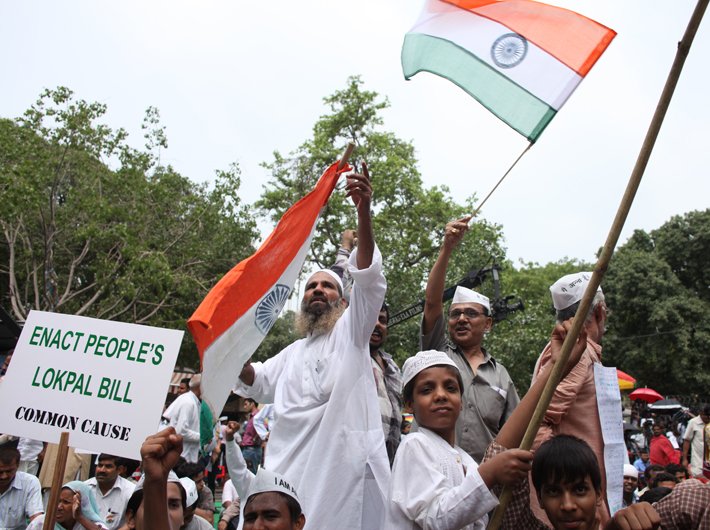The government, about to complete half the term, is in no hurry to bring in the ombudsman
Remember the Lokpal? The one-point panacea for all corruption and black money. It is a law, on the statute book. And while the government has launched a surgical strike against black money that has hit everybody other than its intended targets, this law is quietly gather dust. And the government is completing its half-way mark.
In 2011, the whole nation had come together to press the demand for a Lokpal law. The agitation, led by Anna Hazare, generated the kind of passion and fervour that independent India has witnessed maybe not more than five times so far. Reports of corruption during the Congress regime also added to the anger. At one point, the leaders of the agitation wanted the Lokpal bill to be passed the same day – it could not wait even a day more.
Eventually, the bill was passed (incidentally, during the Congress rule) in early 2014. The search committee started its job, and the leader of opposition in the Lok Sabha, Sushma Swaraj, opposed the choice of the jurist on the search panel, and before the matter could proceed further it was time for elections.
That is where the matter rests today when half of this government’s term is over.
The catch, it has been argued, is that since the largest opposition party – Congress – did not win even ten percent of the seats, there is no leader of opposition (a contestable argument, but it has precedents, and it is the reality), so the law has to be amended to include the leader of the “largest opposition party” in the search panel.
Fair argument. That amendment has been introduced in parliament. And it has not moved in two and a half years. In the meanwhile, since a deadline was coming up for bureaucrats and NGOs to declare their assets, an amendment was rushed last year and it was also passed in a couple of days. But the LoP amendment remains pending.
If there was any urgency to fight corruption, the government could prioritise the amendment bill and no opposition party would have blocked it! If there was any urgency to fight corruption, the government could have taken the ordinance route as well – after all, the government has done so in dozen-plus cases so far where it felt there was urgency. To dilute the land acquisition law, the government issued an ordinance thrice over – but none so far on Lokpal.
Common Cause, an NGO, has gone to the supreme court with a PIL seeking to expedite the constitution of the Lokpal. On November 23, senior advocate Shanti Bhushan, appearing for Common Cause, said, “We don’t have Lokpal even today, despite the Act being notified in 2014. Even jurist has not been appointed and the will of people is being frustrated. Do you require another Anna andolan?”
According to an Indian Express report, the court said, “Now we don’t have an LOP for past two-and-a-half years and it is likely that for the next two-and-a-half years, we would not have the LOP. Since it is not likely to happen, there won’t be any LOP. Then will you allow the law to become redundant just because there is no LOP? An institution like this which is for probity in public life can’t be allowed to become redundant. This institution won’t work like this.”
It was unfortunately due to such procedural delays only that the Modi government in Gujarat – in spite of its best intentions – was deprived of a Lokayukta for almost whole of its 12 years.
The delay in setting up the office of the Lokpal becomes all the more relevant today, when the best measure the government could come up with to fight black money has (a) led to chaos, (b) likely to impact economy, (c) has no way of catching the big fish, and (d) cannot stem generation of fresh black money.
Also read: Organised loot and legalized plunder: MMS on currency chaos
The Lokpal, however, would (a) not harassment to people, (b) not impact economy, (c) target big fish, and (d) stem any future generation of black money.
If the government has still preferred the ‘surgical strike’ route over Lokpal, there must be some good reason for it. We are yet to figure it out, though.
